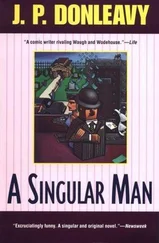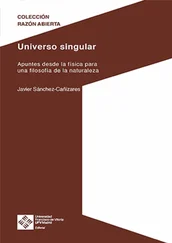And maybe the Arab was not a classmate but a professor, an intellectual who wooed his wife with his knowledge and the fraudulent sensitivity that is second nature to psychoanalysts. Perhaps part of the seduction had been his instructing her which books to read, putting The Kreutzer Sonata on his short list. But why would a professor, who certainly made an adequate salary, sell his book secondhand? Maybe it was a fellow student after all.
Ideally it would be a Jew, the lawyer thought again. Aside from the shame and the fear that his wife’s betrayal would become the topic of the day among his peers, the lawyer hated the fact that his wife was cheating on him with someone who read books. The ancient smell of the pages told him that while he had read The Kreutzer Sonata by chance, her lover, whomever he might be, had read it long before. The lover, who had seemed like a bloodthirsty wolf seeking nothing but the lawyer’s humiliation, now seemed bookish, bespectacled, sensitive, and gentle, the kind of man who listened carefully to the lawyer’s wife, understood her, supported her, embraced her. The lawyer no longer saw her in the middle of wild unabashed lovemaking. Instead she ran to her lover and took refuge in his arms while he stroked her back.
The lawyer, unable to remember the last time he’d felt tears on his cheeks, cried himself to sleep on his desk.
TUNA SANDWICH
He woke up to the sound of the phone. The office was dark and it took him a few moments to figure out where he was. He turned on the reading lamp above his desk, looked at the clock on the wall, and saw that it was already after six.
“I don’t believe it,” his wife said, when he answered the phone. “Are you still at work?”
“I fell asleep,” he said. “I still have some more work to do.”
“It’s Friday. The kids have been asking for you all day. Enough with the work, you’re killing yourself.”
“Okay,” the lawyer said. “I’ll be home soon.”
“Soon doesn’t matter,” she said, “I’m late. I’m going to send the kids over to Nili’s, all right?”
“Okay,” he said. “I’ll pick them up if I get home before you. How long do you think you’re going to be at Diana’s?”
“No more than an hour,” she said. “I’ll call and see where you are when I’m done there, okay?”
“Sure,” he said. “Sounds good.”
“Have you eaten?”
“Yes,” the lawyer said, recalling that since the previous night’s dinner he hadn’t had a thing besides coffee.
He went to the bathroom, relieved himself, then washed his hands and face. He went back to his office and, in addition to The Kreutzer Sonata and his wife’s note, he chose two of the new books and shoved them in his briefcase. The other eight he put in a drawer and locked it. He shut off the light, turned on the alarm, locked the office, and left the building.
The lawyer knew where Diana lived. If his wife was really going to leave the kids with Nili, the gynecologist’s wife, then it would take her half an hour to get to Diana’s place in Sheikh Jarrah. He walked down to the Nahalat Shiv’a pedestrian mall, to the only café that he knew would be open on the eve of Shabbat. The downtown area was filled with freshly showered young men and women in festive Shabbat clothes walking toward the Great Synagogue on King George Street. The men had trimmed beards and wore white shirts and knitted yarmulkes; the girls wore their hair up, with skirts that fell below the knee. The lawyer thought they looked provocative for religious girls. He was jealous of these teenagers on their way to Shabbat prayers, noticing the bashful, virginal glances that the girls cast in the direction of the young men, all of whom seemed to be bursting with self-confidence. He thought of the guys all the girls wanted and of the ones they didn’t, the ones who knew they’d have to make do with the leftovers, the ones who knew they’d have to bank on their parents’ wealth, or their education — or, more likely, the fact that all of the best guys were already spoken for — in order to find love, start a family, build a home. The lawyer had never felt as repulsive as he did at that minute. He dragged his feet along in shame and hoped that none of the passersby noticed him. He had nothing but disdain for himself and his dwindling conviction that his success — his car and his salary — made him desirable. For years he had considered his wife lucky because she got to share her life with him, could reap the fruits of his sharp mind and his uncompromising diligence. But now he disdained himself to such an extent that for a moment he was even able to understand her betrayal. She, he remembered, was one of the more desirable girls, and he shivered at the thought that she might still be.
The café was empty. The lawyer sat outside and ordered a tuna sandwich and a cappuccino. Soft Israeli music flowed from the army radio station. The lawyer smoked, sipped his coffee, and, even though he wasn’t hungry, he ate fast and wondered if he should get himself an additional sandwich. He looked at his watch again and again, but couldn’t have said what time it was. He was checking only to see how much time he had left.
He paid, leaving a generous tip for the young waiter, and walked back up to King George Street, surprised by the silence that the sabbath brought. The only crack in the quiet was the clicking sound at the crosswalks, the signal for the blind. The lawyer’s stride fell into rhythm with the clicking sound, tick, tick, tick, tick, tick. He looked at his watch again and although he thought he might still be early, he set off for the eastern part of the city, driving smoothly and without music, as though trying to avoid desecrating the sabbath.
In the eastern part of the city, Friday at dusk is the busiest time of the week. But as the eastern part of the city would shut down, the west would come to life, the neon lights beckoning the secular partiers, mostly soldiers on weekend leave.
The lawyer drove slowly, quietly, his heart racing as he entered the Sheikh Jarrah neighborhood and turned onto Diana’s street, looking for his wife’s blue car. Maybe I’m early, he thought, trying to console himself in advance, in case he didn’t find her car in front of the new mother’s house. The street was lined with parked cars on either side and the lawyer drove slowly, swiveling his head left and right, searching. Not finding it, he decided to call his wife and ask her where she was. If she said she was at her friend’s house, then he would know for certain that his suspicious were correct. He continued to ease the car down the street as he tapped the buttons on his phone. The lawyer imagined how she would lie, looking at the screen of her cell phone, shushing her lover, inhaling, and answering him in the most casual way.
Before she even answered the phone he saw a blue car turning onto the road.
“Hello,” he heard his wife say as he punched the gas.
“Hey,” he said, “are you there yet?”
“I’m just looking for parking,” she said. “The baby bawled when I left. Where are you?”
“I’m on my way home,” the lawyer said, relieved. “I just wanted to let you know. Five minutes and I’ll be there.”
“Great,” she said. “Get the kids. At least the baby. He broke my heart. I almost didn’t go, he was crying so hard.”
The lawyer drove home. Radio Ramallah played an upbeat song and even though he only knew a few of the words, he sang along, practically happy.
EGON SCHIELE
The lawyer’s daughter fell asleep on the couch while watching TV. His son seemed also about to fall asleep, his pacifier bobbing in his mouth as he opened and closed his eyes. The lawyer looked at his son’s face and decided that they had the same nose, not long and somewhat flat. Many people told him that his son looked just like him. He tried to remember some of the people but couldn’t come up with any names. He looked at his son’s big toe on his right foot. He had once heard that the big toe was one of the clear indicators of paternity, but he couldn’t remember if that had been said in jest or not. He took off his shoes and compared big toes with his son, but was unable to say whether they were alike. By this time his son had fallen asleep, but he knew that he had to hold him for a while longer, until he fell deeper into sleep, otherwise he would wake up while being transferred to the crib.
Читать дальше












